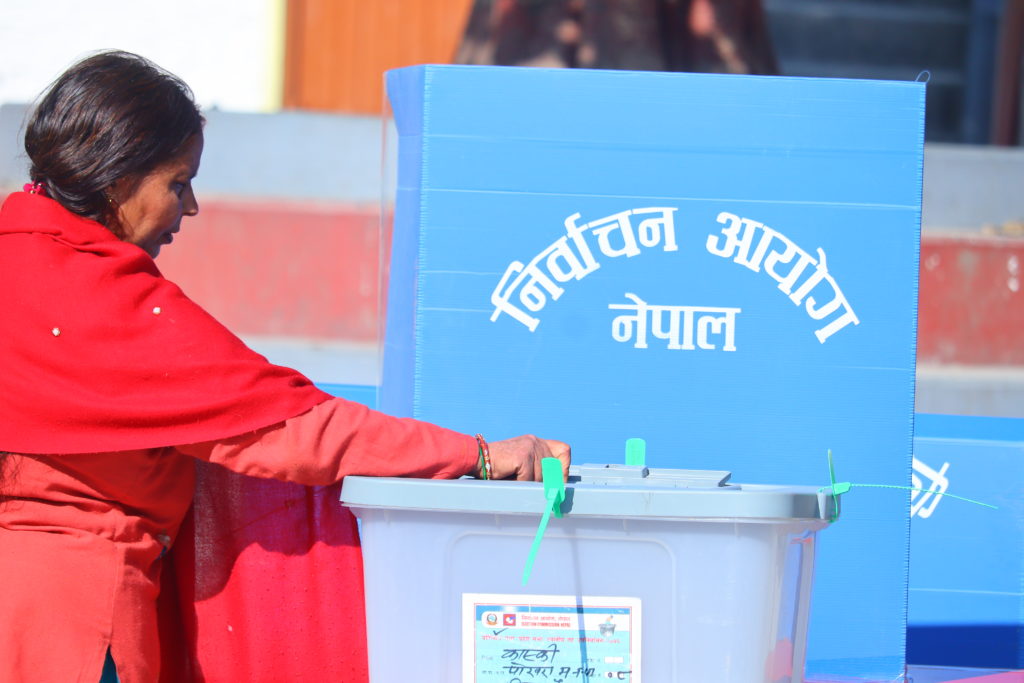Nepal successfully completed the by-elections on 30 November to fill 52 vacant positions at the local, provincial and federal levels. The total number of candidates who contended for the elections was 337, out of whom 34 were female.
The by-elections were completed in a manner generally accepted as peaceful, with the vote counting and the results announcement commencing immediately after polling. No disputes over the results were lodged, the voter turnout for the by-elections stood at 65.5%, and the percentage of invalid votes was 1.7%.
One of the reasons for the low rate of invalid vote was the design of the ballot structure: having individual ballot papers in most places and designing a specific ballot paper for each constituency after candidate nomination meant that all electoral symbols had candidates associated with them. This made it easier for the voters.
The Election Commission, Nepal also paid particular attention to ensure that voter and civic education reached those at the grassroots. In order to do so, it collaborated with the Ministry of Education’s Community Learning Centres to provide voter and civic education to their local communities, especially marginalized ones. In addition to this, the Commission made a conscious effort to keep the voters informed and enhanced its outreach. Based on its first social media strategy, it reached over 1 million people through Facebook and its website included a dedicated space to inform on the by-elections with regular updates.
In the lead up to the by-elections, the Electoral Support Project supported the Commission in various activities: a Building Resources in Democracy, Governance and Elections (BRIDGE) workshop on Electoral Operational Planning; a BRIDGE workshop with people with disabilities to make the electoral process more accessible for them; an event with the Government and political parties on the implementation of the code of conduct; the training of the Chief/Returning Officers, training on Electoral Dispute Resolution as well as training of journalists.
The Electoral Support Project- Phase II (ESP) is a technical assistance initiative which focuses on a long-term institutional and professional capacity development of the Election Commission (ECN) for conducting credible, inclusive and transparent elections. The objectives of the project are 1) to strengthen the capacity of the ECN to function as an independent and credible institution, 2) to allow the conduct of the election cycle in an effective, sustainable, and credible manner, and 3) to increase democratic participation, particularly for under-represented and disadvantaged segments of the Nepali society. In 2019, ESP was funded by the EU and UNDP.

